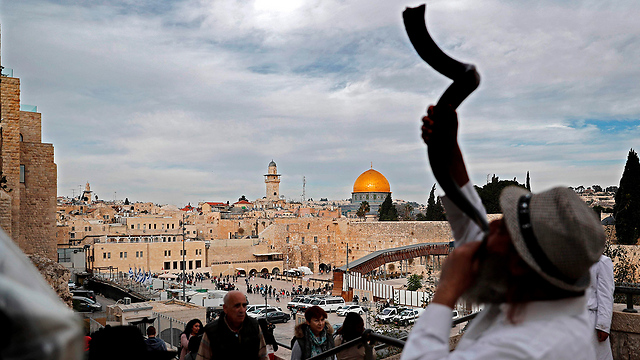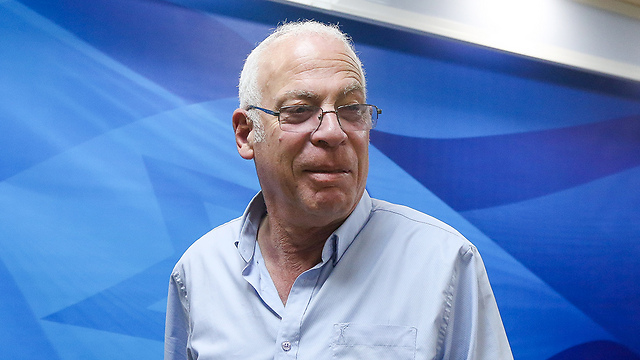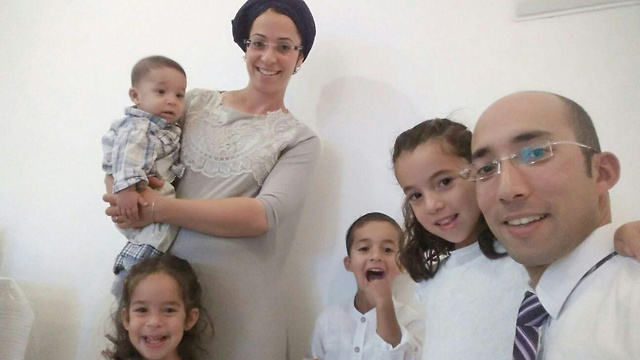Op-ed: If we decide to build in the settlements, it should have nothing to do with terror. The proper response to terror is punishing the perpetrators and preventing future terror; everything else is a cynical use of the victims’ blood to advance sectarian interests. If Agriculture Minister Ariel had his way, we’d all be living in the Temple Mount State.
The funeral of Itamar Ben-Gal, who was murdered at the entrance to Ariel, was attended by Knesset Speaker Yuli Edelstein, Deputy Defense Minister Eli Ben-Dahan, Agriculture Minister Uri Ariel, and others.
Every murder, particularly the murder of a young man, is a traumatic event. The calls for revenge and the accusations of powerlessness hurled at the authorities are understandable. Pain doesn’t produce diplomatic statements.
It seems, however, that a new norm has been created in Israel, reflected in decision makers’ statements and actions, that the proper response to terror attacks is—first of all—an expansion of settlements. If there is no building permit, it is soon granted; if there is a permit, there is an expansion.

This is allegedly a rational response aimed at replacing the impulsive calls for collective revenge and permitted bloodshed. There’s no need to shed blood; there’s a need to build. This norm, in actual fact, has nothing to do with rational behavior. On the contrary, it seems to be turning terror into an axe to grind. Terrorists are providing an exemption from discretion.
The decision if and where to build should only be made from considerations of political logic and under the restrictions of the law. Just like the response to Jewish murderers isn’t to dismantle settlements, the response to Palestinian murderers isn’t to build settlements. If we decide to build, it should have nothing to do with terror. The proper response to terror is punishing the perpetrators and preventing future terror. Everything else is a cynical use of the victims’ blood to advance sectarian interests.
We should also pay attention to the fact that sectarian victims are the only ones who provide restraining and expropriation orders. If the murdered are people from the sector that believes the diplomatic stalemate is killing us—their voice should be ignored.

And in case you’re still wondering, Minister Ariel rushed to clarify the objectives dictated by the blood that has been shed, as far as he’s concerned: “It’s the Temple Mount’s time, it’s time for the people of Israel to recognize the sanctity of the land… Security forces have many ways of dealing with terror. There are things which have yet to be done, like expelling the family and other things, and it’s time to do them immediately. Not after the next murder, but in order to prevent the next murder.
“We in the government are responsible both for security and for building the Land of Israel. We shouldn’t wait for someone to be murdered to build Har Brakha or Havat Gilad… We should say it loud and clear: Between the river and the sea there will be one sovereign state, the State of Israel with united Jerusalem as its capital…”
Well, first of all the Temple Mount. The local fire needs more fuel, and the minister would be happy to add some. Allegedly, Ariel’s agenda doesn’t depend on blood. If it were up to him, everything would be done anyway. Since it’s not being done, it’s time to do it in the name of blood.

What time is it? “The Temple Mount’s time.” What kind of mitzvot has this time created? First of all, presumably, violating the fragile status quo over the Temple Mount, which Ariel and his friends detest. Building a synagogue? Probably. And then building a temple? Absolutely. How much blood will it cost us? These are questions the minister doesn’t care about, just like he doesn’t care about questions of political logic.
“It’s time for the people of Israel to recognize the sanctity of the land.” In Ariel’s world, there is no State of Israel and no citizens in the State of Israel. He doesn’t approve of those terms, as they include quite a few people who are not “the people of Israel.” His “people of Israel” don’t defend their right to live in his state; they must recognize “the sanctity of the land.” And matters of sacredness are not discussed in committees or in parliament; they are handed over to God’s experts. Everything is ours—and actually theirs.
What should we do in the meantime? Expel families, for example. And why should families that haven’t sinned be expelled? The minister would rather not say. Towns must be built in Havat Gilad and in Har Brakha, because there is only room for one sovereign state between the Jordan River and the Mediterranean Sea. And since it’s the Temple Mount’s time, we will soon see the establishment—if Ariel and his partners are willing—of the Temple Mount state.
As reported by Ynetnews
